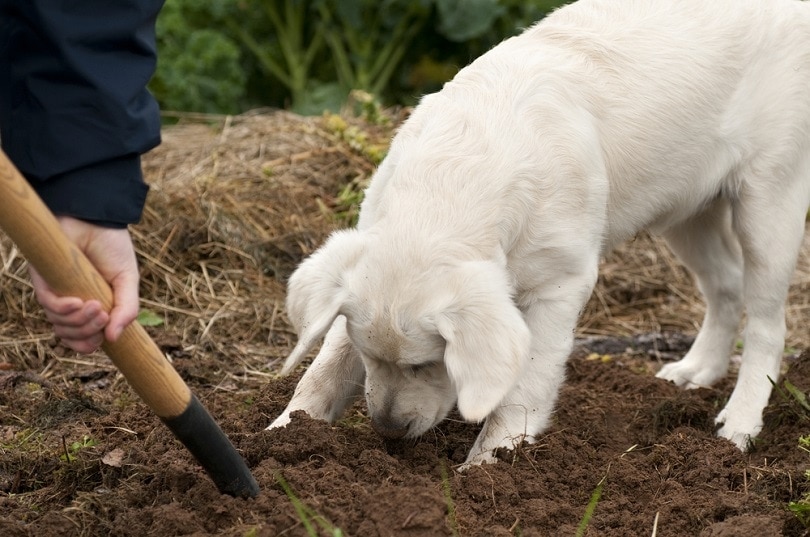Inspired by his unending joy for life, you marvel at how your dog manages to turn even a simple walk in the park into an adventure. His indomitable spirit and entertaining antics keep you smiling. For that, and so much more, you love him dearly and do everything in your power to keep him safe from harm.
Its a tall order when you consider all the things that can potentially be dangerous to your dogs health. And sometimes, of course, a dog is his own worst enemy, and being a pet parent means your dog is wholly dependent upon you to keep him out of trouble. For example, he cant use his own judgment on whether something should or should not be chewed on or devoured, and sometimes dogs just dig in; its the nature of the beast.
Unfortunately, noxious items such as dirt, rocks, socks, human medication, sticks, chocolate, houseplants, rodenticides, and many more inedible and toxic items; among them, lawn fertilizer, can end up in his tummy. Consequently, proper storage and making noxious items inaccessible to him goes a long way in the prevention of accidental poisoning, gastric upset, or obstructions that may require surgery. In the case of fertilizer, keep in mind that close supervision of your dog when outdoors is also vitally important.
Because even if you do everything right and keep fertilizer safely locked up, your dog may encounter lawn fertilizer on a neighbors property, or even in a public space. Many dogs like to eat grass, and if he nibbles on fertilizer-treated grass, he will be exposed to the fertilizers toxins. In this case, youll need to act fast and know what to do.
First, call your veterinarian, the Pet Poison Helpline at (855)764-7661, or the National Animal Poison Control Center at (888)426-4435 for professional advice.
Partly due to their inquisitive nature and willingness to investigate everything with their mouths, dogs far outrank other species when it comes to owners seeking aid for potential poisonings through the Pet Poison Helpline, making up 70 to 80% of all animal cases. Known as indiscriminate eating, or pica, many inedible items your dog eats like dirt or non-toxic organic matter may safely pass through her system, but pica is downright dangerous when it comes to ingesting toxic substances like lawn fertilizer, directly out of the package or in fertilizer-treated landscapes.
Pet Poison Helpline advises pet parents to poison-proof their home. To that end, properly storing lawn fertilizer in your home or garage by making it completely inaccessible to your dog will help prevent accidental poisoning. If you use lawn fertilizer on your property, secure that portion of the lawn with a barrier such as a fence to keep your dog out and safe from potential poisoning.
How Much Fertilizer Will Make a Dog Sick?
The amount of fertilizer that will be toxic to your dog depends on the type of fertilizer and size of your dog. Roughly, the dose at which you should be worried about your dog is 0.5g of fertilizer for every 2lb of bodyweight. In other words, a 20lb dog should definitely visit the vet if they eat just a teaspoon of fertilizer. For liquid fertilizers, the risk of impaction is lower but the same calculation applies – 5ml of fertilizer should mean a call to the vet.

Will Scotts fertilizer kill dogs?
Like Miracle-Gro, Scotts is a brand name, and they make a huge variety of products. Like all fertilizers, they can be dangerous – you should call your pet poison helpline or your veterinarian for advice.
Causes of Fertilizers Poisoning in Dogs
A dog can be exposed to fertilizer by simply walking across a lawn that has been treated. Some fertilizer residues can stay in toxic form for days to weeks. Aside from the accidental ingestion of a product that the pet finds palatable, chewing on treated grass or licking the fur and feet after a dermal exposure can cause toxic effects. Some of the additives that may be present in fertilizer are:
FAQ
Is citrus tree fertilizer toxic to dogs?
How much fertilizer is poisonous to dogs?
How long does it take for fertilizer to affect dogs?